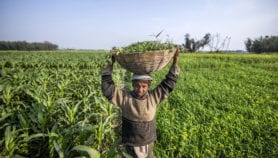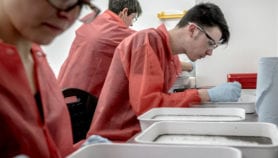Send to a friend
The details you provide on this page will not be used to send unsolicited email, and will not be sold to a 3rd party. See privacy policy.
In January 2000, the parties to the Convention on Biological Diversity adopted the Cartagena Protocol on Biosafety. The protocol is an effort to protect biodiversity from the potential risks posed by living organisms modified as a result of biotechnology.
In this article, Willy De Greef of the Plant Biotechnology Institute for Developing Countries argues that regulatory measures for biotechnology, particularly those of the Cartagena Protocol, pose a threat to research efforts to create sustainable solutions for food and health security in developing countries.
Part of the problem, says De Greef, is that the Cartagena Protocol is almost devoid of serious scientific input from the public sector. As a result, a minority group of ‘fringe scientists’ are taken to be representative of wider public research efforts and views. Public researchers, he concludes, need to take a stronger stance in the regulatory debate and can do so through a newly created network.
Reference: Nature Biotechnology 22, 811 (2004)













